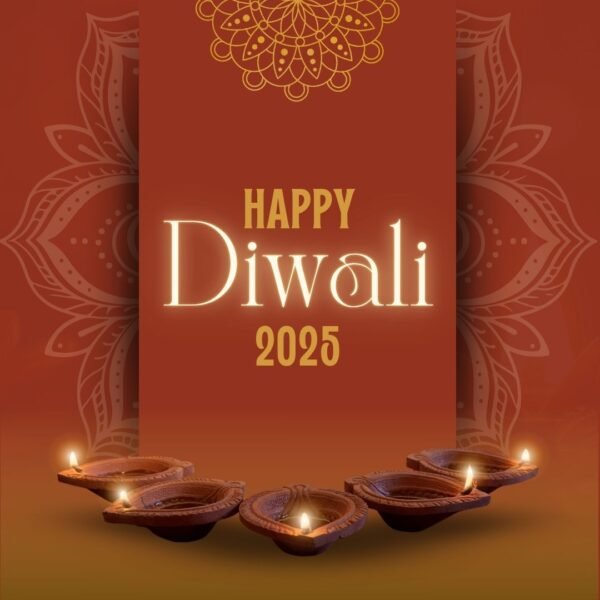Diwali, also known as Deepavali, is one of the most widely celebrated Hindu festivals across India and by Indian communities around the world. It marks the victory of light over darkness, good over evil, and knowledge over ignorance. Traditionally known as the Festival of Lights, homes are illuminated with diyas (oil lamps), candles, and vibrant rangoli designs. People dress in new clothes, offer prayers to Goddess Lakshmi, and enjoy festive foods, sweets, and firecrackers. Diwali signifies prosperity, new beginnings, and family unity, making it one of the most spiritually uplifting times of the year.

Diwali 2025 Date
In 2025, Diwali will be celebrated on Monday, October 20. The main celebration falls on the day of Amavasya (new moon) in the Hindu month of Kartika. This date is based on the lunar calendar and can vary each year. The five-day festival begins with Dhanteras and ends with Bhai Dooj, but the main Diwali night — often referred to as Lakshmi Puja — will occur on October 20, 2025. On this night, devotees worship Goddess Lakshmi, the goddess of wealth, for blessings of prosperity and well-being.
Significance of Diwali Festival
Diwali is not just a religious event; it is deeply woven into the cultural and social fabric of India. Different regions celebrate different mythological events during this time. In North India, it commemorates Lord Rama’s return to Ayodhya after defeating Ravana, while in South India, it marks Lord Krishna’s victory over Narakasura. For Sikhs, it is linked with the release of Guru Hargobind Ji from imprisonment, and Jains observe it as the day Lord Mahavira attained nirvana. Across faiths, the essence of Diwali remains the same — a celebration of hope, renewal, and inner light.
How Diwali is Celebrated in India and Abroad
Diwali celebrations begin weeks in advance with cleaning and decorating homes, shopping for new clothes, gold, and gifts, and preparing traditional sweets like laddoos, barfis, and gulab jamun. On the day of Diwali, families come together to perform Lakshmi Puja, followed by lighting candles and bursting firecrackers to signify joy and the dispelling of negativity. In urban areas, eco-friendly Diwali practices are also gaining popularity.
Outside India, countries like Nepal, Sri Lanka, Malaysia, Fiji, Mauritius, and Trinidad & Tobago host vibrant Diwali events with cultural programs, temple rituals, and grand firework displays. The Indian diaspora plays a vital role in keeping these traditions alive, blending local customs with age-old Indian rituals.
